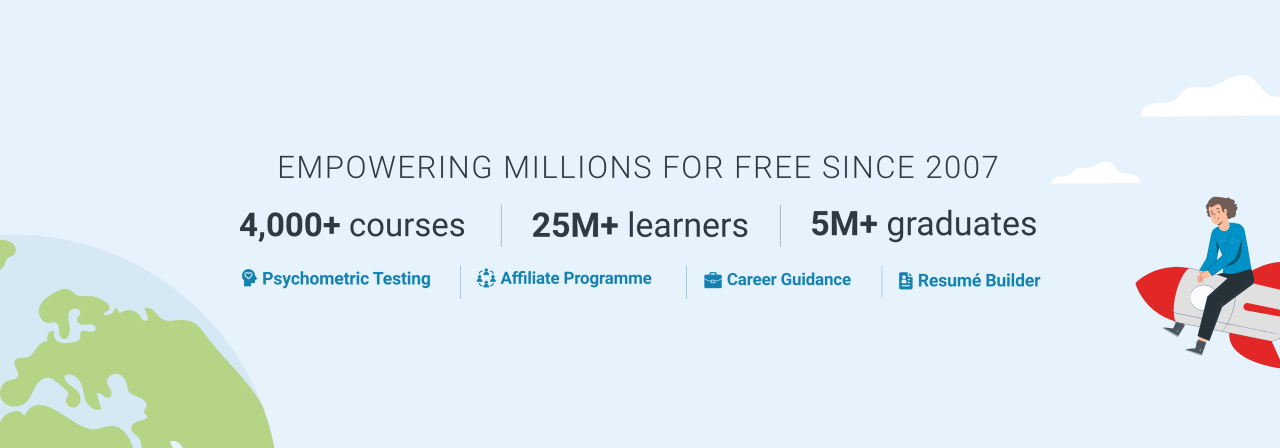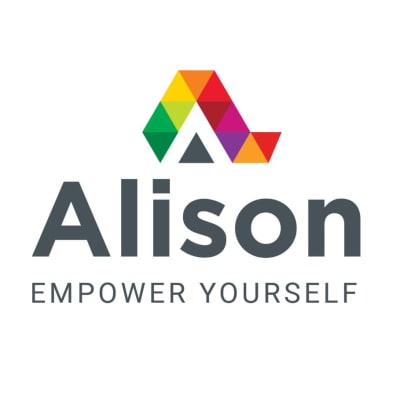
Alternative Dispute Resolution (Free Online Course With Diploma)
Alison Free Online Learning

Key Information
Campus location
Online
Languages
English
Study format
Distance Learning
Duration
10 - 15 hours
Pace
Full time, Part time
Tuition fees
Request info
Application deadline
Request info
Earliest start date
Request info
* Free Online Course
Scholarships
Explore scholarship opportunities to help fund your studies
Introduction
Alison's free online Diploma in Alternative Dispute Resolution (ADR) course provides a comprehensive review of dispute resolution. Alternative Dispute Resolution is the process of settling disputes without litigation. This course will teach you more about this dispute resolution process and covers topics such as common causes of conflict, how to overcome conflicts and the main components of alternative dispute resolution practices.
This is a free online course with certificate. Interested? Simply click the button and start today.
This Free Online Course Includes:
- 10-15 Hours of Learning
- CPD Accreditation
- Final Assessment
Alison Certificates
All Alison courses are free to enrol study and complete. To successfully complete this Diploma course and become an Alison Graduate, you need to achieve 80% or higher in each course assessment. Once you have completed this Diploma course, you have the option to acquire an official Diploma, which is a great way to share your achievement with the world.
Your Alison Diploma is:
- Ideal for sharing with potential employers
- Include it in your CV, professional social media profiles and job applications.
- An indication of your commitment to continuously learn, upskill & achieve high results.
- An incentive for you to continue empowering yourself through lifelong learning.
Alison offers 3 types of Diplomas for completed Diploma courses:
- Digital Diploma: a downloadable Diploma in PDF format immediately available to you when you complete your purchase.
- Diploma: a physical version of your officially branded and security-marked Diploma, posted to you with free shipping.
- Framed Diploma: a physical version of your officially branded and security-marked Diploma in a stylish frame, posted to you with free shipping.
Gallery
Scholarships and Funding
Curriculum
This course will discuss the different types, various causes, and outcomes of conflicts. You will learn about common conflict-handling styles and how to resolve disagreements effectively. You will study the five stages of negotiation and the process of Alternative Dispute Resolution including its benefits as a conflict resolution method. You will learn how to prepare for an ADR process, what to expect from an ADR process, and how confidentiality is maintained during an ADR process.
You will then learn about important features of alternative dispute resolution including the goals and possible uses of ADR. The course will teach you when to implement ADR programs, the different ADR limitations, and the important background conditions that will help achieve a successful ADR program. You will also study the key preparation criteria and implementation criteria which are important when designing an ADR program.
More and more people are utilizing Alternative Dispute Resolution procedures such as arbitration, mediation, or negotiation to settle different issues in the area of labour, divorce, and personal injury. Unlike adversarial litigation, ADR procedures are often collaborative and allow the parties to voice out their true opinions. ADR also allows the parties to come up with more creative solutions to settle their disputes. By taking this course, you can get up to speed on this highly important set of procedures.
Module 1
Understanding Conflict
This module outlines the different types of conflict as well as various causes and outcomes of conflict. You will also learn about common conflict-handling styles and how to resolve disagreements effectively.
Module 2
Managing Negotiations
In this module, you will learn about the five stages of negotiation, how to avoid common mistakes in negotiation and effective strategies to use in negotiation. You will also learn about third-party negotiations including mediation and arbitration, tips on how to have successful negotiations, and ethical and cross-cultural negotiations.
Module 3
Introduction to Alternative Dispute Resolution
In this module, you will learn about Alternative Dispute Resolution (ADR), the benefits of using ADR as a conflict resolution method, the ADR process, why ADR should be chosen as a resolution method, how to prepare for an ADR process, what to expect from an ADR process and how confidentiality is maintained during the ADR process.
Module 4
Methods of Alternate Dispute Resolution
In this module, you will learn about the most common and uncommon methods of ADR. You will learn about when each type of ADR method is used and the benefits and drawbacks of each. You will also learn about situations where inequality can arise within an ADR process. and plans to overcome this.
Module 5
Diploma in Alternative Dispute Resolution - First Assessment
You must score 80% or more to pass this assessment.
Module 6
What can ADR do?
In this module, you will learn about different features of alternative dispute resolution (ADR) including the goals and possible uses of ADR and when to implement ADR programs in the context of rule of law assistance.
Module 7
What Background Conditions are Important?
In this module, you will learn about different ADR limitations and the background conditions that are important to achieve to have a successful ADR program.
Module 8
Program Design Considerations in ADR
In this module, you will learn about program design considerations that contribute to the success of ADR. You will learn about the two categories associated with ADR program design considerations: planning and preparation and operations and implementations.
Module 9
Taxonomy and Case Studies
In this module, you will learn about how different ADR programs are used by designing ADR programs to suit various situations.
Module 10
Diploma in Alternative Dispute Resolution - Second Assessment
You must score 80% or more to pass this assessment.
Module 11
Course assessment
Program Outcome
What You Will Learn In This Free Course
- Describe the different types of conflict.
- Apply the five stages of negotiation.
- Identify common mistakes that occur in negotiations.
- Describe the role of ethics when negotiating with others.
- Define what alternative dispute resolution (ADR) is.
- Explain various aspects of preparing for ADR.
- Determine when arbitration, mediation, or negotiation is a viable option for dispute resolution.
- Explain the conditions under which ADR programs can succeed.
- List the particular background conditions that are especially relevant to ADR programs.
Complete This CPD Accredited Course & Get Your Diploma!
Certify Your Skills
A CPD-accredited Alison Diploma/Certificate certifies the skills you’ve learned.
Stand Out From The Crowd
Add your Alison Certification to your resume and stay ahead of the competition.
Advance in Your Career
Share your Alison Certification with potential employers to show off your skills and capabilities.
Career Opportunities
Arbitrator
Arbitration is a humane yet rational instrument of pacification that focuses on facilitating and resolving legal disputes outside of the court system. Arbitrators prefer to use an open, friendly, practical, and peaceful approach to seek a just and durable solution.
Mediator
If the best general is the one who never fights, then the most efficient Mediator is the one who maintains neutrality while hearing and understanding the diverse perspectives and evidence in a conflict without judging or interrupting the parties involved. Mediators use their legal knowledge to foster conflict resolution among disputants by negotiating a compromise rather than having them engage in a costly and time-consuming court process.
About the School
Questions
Similar Courses
MSc Construction Law & Dispute Resolution (DL)
- UK Online, United Kingdom